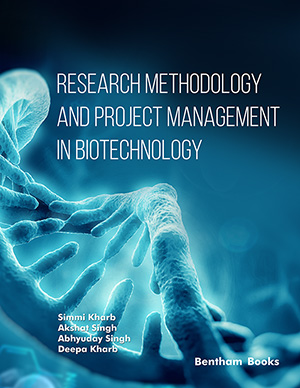
Abstract
There is growing evidence that epigenetics, the study of heritable changes in gene expression that do not involve mutations in the DNA itself, may play an essential role in autoimmune diseases (AID). In Sjogren’s syndrome (SS), a chronic AID characterized by an epithelis of the exocrine glands, epigenetic studies have focused on three mechanisms: DNA methylation and its consequences including human endogenous retrovirus (HERV) expression; microRNA expression; and protein post-translational modifications associated with autoantibody production. Although in its infancy, comprehension of the epigenetic (dys)regulation in SS may help us to understand: why SS affects predominantly middle-aged women; why genetically predisposed individuals develop SS but not others; why flare-ups occur; why treatment responses differ between patients; and why some patients develop lymphoma. From these studies will arise a better comprehension of the pathophysiology of SS as well as development of new diagnostic and prognostic biomarkers, and novel therapeutics for prevention and perhaps early intervention.
Keywords: Sjogren’s syndrome, epigenetics, DNA methylation, microRNAs, post-translational modifications, human endogenous retrovirus 1. INTRODUCTION, autoimmune diseases (AID), exocrine glands, epigenetic studies, human endogenous retrovirus (HERV), epigenetic (dys), autoantibody production, lymphoma.
Current Pharmaceutical Biotechnology
Title:Epigenetics and Sjogren’s Syndrome
Volume: 13 Issue: 10
Author(s): Christelle Le Dantec, Marie-Michele Varin, Wesley H Brooks, Jacques-Olivier Pers, Pierre Youinou and Yves Renaudineau
Affiliation:
Keywords: Sjogren’s syndrome, epigenetics, DNA methylation, microRNAs, post-translational modifications, human endogenous retrovirus 1. INTRODUCTION, autoimmune diseases (AID), exocrine glands, epigenetic studies, human endogenous retrovirus (HERV), epigenetic (dys), autoantibody production, lymphoma.
Abstract: There is growing evidence that epigenetics, the study of heritable changes in gene expression that do not involve mutations in the DNA itself, may play an essential role in autoimmune diseases (AID). In Sjogren’s syndrome (SS), a chronic AID characterized by an epithelis of the exocrine glands, epigenetic studies have focused on three mechanisms: DNA methylation and its consequences including human endogenous retrovirus (HERV) expression; microRNA expression; and protein post-translational modifications associated with autoantibody production. Although in its infancy, comprehension of the epigenetic (dys)regulation in SS may help us to understand: why SS affects predominantly middle-aged women; why genetically predisposed individuals develop SS but not others; why flare-ups occur; why treatment responses differ between patients; and why some patients develop lymphoma. From these studies will arise a better comprehension of the pathophysiology of SS as well as development of new diagnostic and prognostic biomarkers, and novel therapeutics for prevention and perhaps early intervention.
Export Options
About this article
Cite this article as:
Le Dantec Christelle, Varin Marie-Michele, H Brooks Wesley, Pers Jacques-Olivier, Youinou Pierre and Renaudineau Yves, Epigenetics and Sjogren’s Syndrome, Current Pharmaceutical Biotechnology 2012; 13 (10) . https://dx.doi.org/10.2174/138920112802273326
| DOI https://dx.doi.org/10.2174/138920112802273326 |
Print ISSN 1389-2010 |
| Publisher Name Bentham Science Publisher |
Online ISSN 1873-4316 |
Call for Papers in Thematic Issues
Artificial Intelligence in Bioinformatics
Bioinformatics is an interdisciplinary field that analyzes and explores biological data. This field combines biology and information system. Artificial Intelligence (AI) has attracted great attention as it tries to replicate human intelligence. It has become common technology for analyzing and solving complex data and problems and encompasses sub-fields of machine ...read more
Latest Advancements in Biotherapeutics.
The scope of this thematic issue is to comprehensively explore the rapidly evolving landscape of biotherapeutics, emphasizing breakthroughs in precision medicine. Encompassing diverse therapeutic modalities, the issue will delve into the latest developments in monoclonal antibodies, CRISPR/Cas gene editing, CAR-T cell therapies, and innovative drug delivery systems, such as nanoparticle-based ...read more
Machine Learning and Artificial Intelligence for Medical Data Analysis and Human Information Analysis in Healthcare
The intersection of machine learning (ML) and artificial intelligence (AI) with the pharmaceutical industry is revolutionizing traditional paradigms in drug discovery and development. These technologies have introduced innovative approaches to analyzing complex datasets and predicting chemical properties, leading to more efficient identification and optimization of drug candidates. By employing sophisticated ...read more
 20
20
- Author Guidelines
- Graphical Abstracts
- Fabricating and Stating False Information
- Research Misconduct
- Post Publication Discussions and Corrections
- Publishing Ethics and Rectitude
- Increase Visibility of Your Article
- Archiving Policies
- Peer Review Workflow
- Order Your Article Before Print
- Promote Your Article
- Manuscript Transfer Facility
- Editorial Policies
- Allegations from Whistleblowers
Related Articles
-
Therapeutic Use of Brentuximab Vedotin in CD30+ Hematologic Malignancies
Anti-Cancer Agents in Medicinal Chemistry The Interplay between G-quadruplex and Transcription
Current Medicinal Chemistry Regulation of HIPK Proteins by MicroRNAs
MicroRNA Bioactive Peptides: Potential Impact on the Treatment of Gastrointestinal Cancers
Current Pharmaceutical Design Protein Interaction Domains: Structural Features and Drug Discovery Applications (Part 2)
Current Medicinal Chemistry Self-Adjuvanting Lipopeptide Vaccines
Current Medicinal Chemistry Thrombotic Microangiopathy and Occult Neoplasia
Cardiovascular & Hematological Disorders-Drug Targets An Overview of Synthesis of Indole Alkaloids and Biological Activities of Secondary Metabolites Isolated from Hyrtios Species
Mini-Reviews in Medicinal Chemistry Comparison of Conventional and Microwave Synthesis of Phenyl-1H-pyrazoles and Phenyl-1H-pyrazoles-4-carboxylic Acid Derivatives
Current Organic Synthesis Biological Activity and Delivery of Peptide Nucleic Acids (PNA)-DNA Chimeras for Transcription Factor Decoy (TFD) Pharmacotherapy
Current Medicinal Chemistry Evaluation of In-Vitro Multidrug Resistance Reversal Activities of HZ08 analogues with Improved Soluble Property
Letters in Drug Design & Discovery Extracellular Production of the Oncolytic Enzyme, L-Asparaginase, by Newly Isolated Streptomyces sp. Strain NEAE-95 as Potential Microbial Cell Factories: Optimization of Culture Conditions Using Response Surface Methodology
Current Pharmaceutical Biotechnology Adverse Reactions Induced by Minocycline: A Review of Literature
Current Drug Safety Modulation of Energy Intake and Expenditure Due to Habitual Physical Exercise
Current Pharmaceutical Design Epigenetics in Medullary Thyroid Cancer: From Pathogenesis to Targeted Therapy
Recent Patents on Anti-Cancer Drug Discovery Physical Activity and Diabetic Cardiomyopathy: Myocardial Adaptation Depending on Exercise Load
Current Diabetes Reviews Possible Pathogenic Role of the Transmembrane Isoform of CD160 NK Lymphocyte Receptor in Paroxysmal Nocturnal Hemoglobinuria
Current Molecular Medicine Dibenzofurans from Lichens – A Pharmacological Overview
Current Topics in Medicinal Chemistry Novel Lipid and Polymeric Materials as Delivery Systems for Nucleic Acid Based Drugs
Current Drug Metabolism Molecular Insight into the Apoptotic Mechanism of Cancer Cells: An Explicative Review
Current Molecular Pharmacology


























